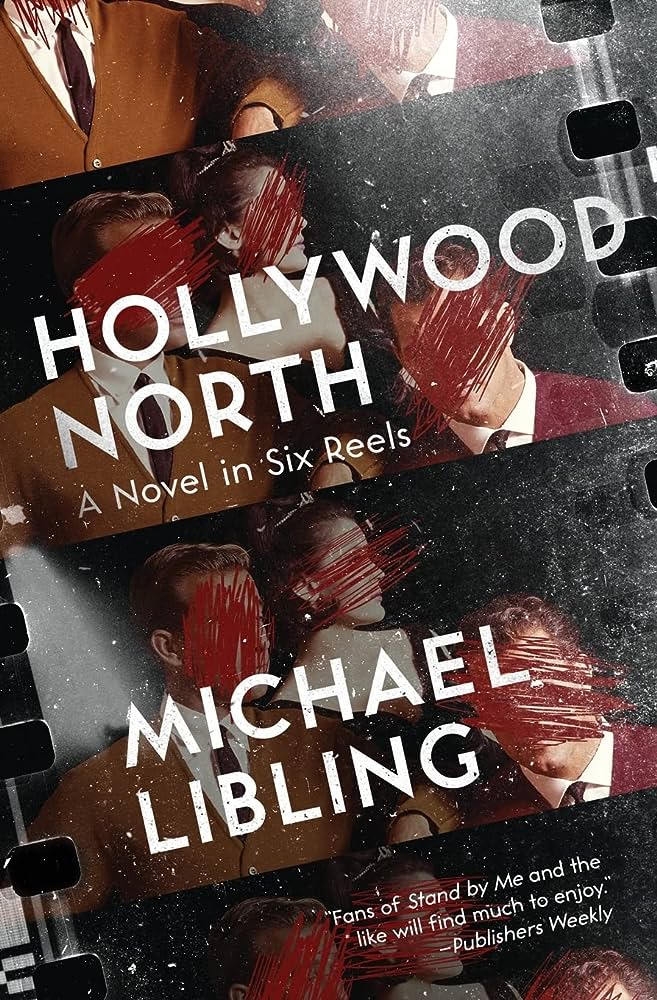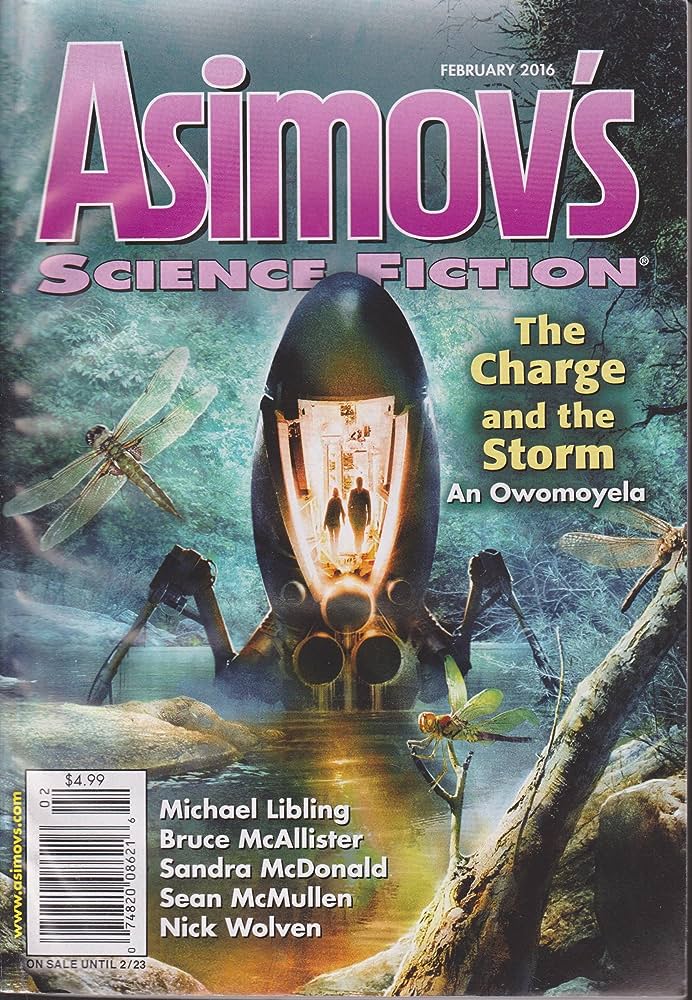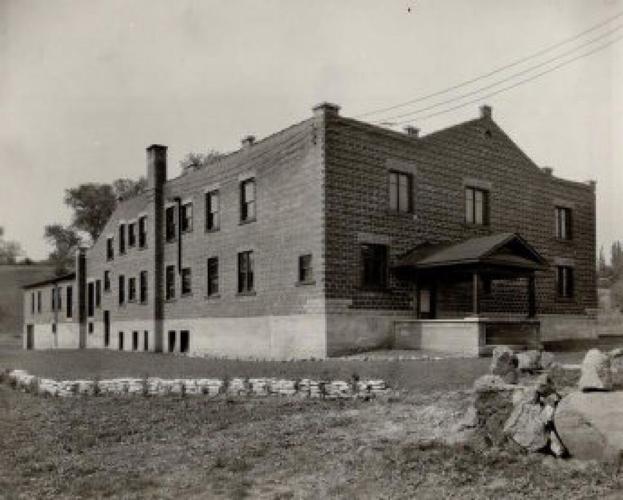
Ever wondered if murder is genetic? Michael Libling has, and the result is a serial-killer novel unlike any you have read.
Due out early next month from Wordfire Press, The Serial Killer’s Son Takes a Wife is the follow-up to Michael’s excellent Hollywood North: A Novel in Six Reels. And like that book, it’s a winning blend of mystery, horror, and dark humor. It’s the Coen brothers meet Thomas Harris, and I can’t recommend it enough.
I’ve been a fan of Michael Libling’s work for some time now, first encountering it in the pages of The Magazine of Fantasy & Science Fiction (generally regarded as the most literary of the sf magazines) before finally getting the chance to meet him at The Milford Reading and Writing Festival, where I was the science fiction guest of honor in 2017. A couple of years later, when the Fantasia International Film Festival took me to Michael’s hometown of Montreal, Michael graciously provided a tour of the city–pointing out landmarks, sharing bits of local lore, and talking about the writing of what was then his soon-to-be-published first novel, Hollywood North.

Earlier this week, I had the chance to connect again with Michael about his latest book.
Here are some highlights of that exchange.
How would you describe The Serial Killer’s Son Takes a Wife for people who are just learning about it? In other words, what’s your elevator pitch?
My first thought is that you, Mr. Connolly, already nailed this when you called it “the Coen brothers meet Thomas Harris.” This remains my favorite pitch line to date. And now I have to go and spoil it all by expanding upon your one-liner with far too many words for any elevator, unless, perhaps, it gets stuck between floors. Clearly, I suck at elevator pitches.
Bobby Blessing, the son of a serial killer, has long tried to distance himself from his horrific past, going so far as to run an ice cream parlor in Saratoga Springs, NY. Sadly, it’s a lonely life. Serial Dad isn’t exactly a selling point for a lasting relationship. So when the astonishing Cori Widdoes shows up with a craving for ice cream, Bobby abruptly forgets the one key to his survival: Nothing is what it seems. And soon he must face a whole new dilemma: How do you tell the woman you love your father is a serial killer?
Yup, it’s a serial killer thriller with a scoop of mystery, a generous sprinkling of dark humor, a gooey dollop of romance, and a messy topping of horror.

Much of your previous work has appeared in fantasy and science fiction magazines, and your novella Hollywood North (which became your first novel) was nominated for the prestigious World Fantasy Award. But Serial Killer’s Son has neither fantasy nor science fiction elements. What prompted the switch?
I might have switched to some degree, but not entirely. If you read any of my fiction, you’ll see my writing tends to cross genres, and this includes the World Fantasy Award nominee, Hollywood North, and the novel that grew from it. Mostly, I just try to write compelling, character-driven stories and, if I find myself incorporating more than one genre in a single tale, so be it. It’s probably the wrong way to work in the professional sense, but I begin with the seed of a concept and let the story grow from there. As to specific genre, I usually have an idea at the outset as to where it will fit, but am never surprised when this shifts by the end.
My initial aim in writing The Serial Killer’s Son Takes a Wife was to create a provocative and gripping thriller. While an apparent departure from my usual, the elements of fantasy and horror it contains swing it back to what you might call my more familiar realms.

At what point did you decide to be an author, and what was your path to publication?
I’ve told this story many times before. In fifth grade, the class was asked to write a story about a fire. I went home and started the piece. Mara, my older sister, happened to see what I was working on and groaned. “Everyone is going to write about a burning building,” she said. “Burn something different.” Days later, the teacher read my forest-fire story to the class—the first time I’d ever had this happen!—and I loved the feeling. From this point on, I wanted to write, with a determination to burn something different every time.
University provided further encouragement under the tutelage of two great writers, Clark Blaise and Mordecai Richler. They both saw something of value in the work I turned in and never hesitated to push me further. Although they are both considered literary writers, they were open to all genres, which contributed to the direction I’ve gone since.
While I managed to sell many non-fiction and humor features to newspapers and magazines over the years, I struggled to sell fiction, finally taking a job as an ad copywriter to pay the bills, ultimately advancing to the role of creative director. Eventually, a novel I’d written—Life In Henk—caught the eye of an agent (the late Virginia Kidd) and she took me on as a client in December 1992. While that novel has never sold, despite a couple of crushing close calls, my short fiction began selling pretty much immediately and continues to find markets to this day. My recent novels are a direct result of my track record in short fiction.
Describe your writing process. Do you outline, plot and plan, or is your writing more organic?
I do not outline at first. I just fly. Again, I begin with the seed of a concept, followed by what I hope will be an attention-grabbing opening sentence. In the early stages, I simply try to move the story from point A to point B and so on, connecting the dots. But then, before I even realize, I am jotting down notes for points C, D, E, F, and all the way through to Z. An outline inevitably (and, I guess, organically) takes shape as I move deeper into the work. From this point on, I live and breathe the story, recording notes and storylines as I move ahead. The work in progress is the last thing I think about before falling asleep at night and the first thing that comes to mind on awakening the next morning. There’s no better feeling in the world when it all begins to drop into place.

To what extent have you incorporated your personal experiences—life, jobs, education—in your writing?
Depends on the story, of course, but I’d say there’s some bio in pretty much every story I write, which I suspect is the case for most fiction writers. And yeah, the same applies to The Serial Killer’s Son Takes A Wife. It is not, however, a memoir disguised as fiction. At least I don’t think it is.
On the other hand, my previous novel, Hollywood North, was very much based on my experiences growing up in the small town of Trenton, Ontario, and my gradual discovery of the freaky events that have occurred in the town over the years, starting with the movie studio that operated from 1917 to 1934 and culminating with the 2010 arrest of the Commander of the nearby Air Force base for serial rape and murder. Then again, I do tend to write about small towns and the quirky characters that inhabit them, and usually it’s a version of Trenton I have in mind. In this regard, The Serial Killer’s Son Takes A Wife is no exception.

What has been the toughest criticism you have received as an author? What has been the best compliment?
It was tenth grade. I wrote a story about a fire—yeah, another fire! (Teachers, back then, seemed to be keen on pyromania.) Anyhow, as part of the story, a wolf becomes trapped in a log cabin, where an oil lantern topples over onto him and the wolf catches fire. The substitute teacher who marked it discounted everything about the story, delivering only this message: “This has all the earmarks of someone who enjoys inflicting cruelty upon animals.” I was upset and angry about the comment then and remain so now. Hell, I don’t even kill spiders in the house!
More recently, a Goodreads reviewer was displeased with my story “At the Old Wooden Synagogue on Janower Street” that first appeared in Asimov’s Science Fiction (Sept./Oct. 2019) and later in Rich Horton’s The Year’s Best Science Fiction and Fantasy. The reviewer wrote:
“Poor. Yuck. This gimmick story exploits the Holocaust when a jewish [sic] family walks into a diner.”
That so-called review cut deep, mainly because the story had been simmering in my brain for years before I was able to bring myself to write it. Indeed, it is perhaps the most personal story I’ve ever written. My father’s parents and youngest sister were murdered in the Holocaust. I was eight or nine when my father finally summoned the strength to tell me about this, and I always hoped he was wrong, that one day his lost family would walk back into our lives. That’s what the story was about, this childhood hope I had. In fact, I write about it on my website (www.michaellibling.com) under the title “How A Comic Book Ad Taught Me About the Holocaust.”
As for the best compliment, I consider every positive review I’ve ever received to be a “best,” no matter where it has appeared. And to all those generous reviewers, I extend a huge and sincere thank you.

Share some advice for aspiring authors. What advice would you give to your younger self?
Shut up! Stop talking about the stories you’re going to write. Stop telling me about the characters and the plot points. Just keep your mouth shut and write.
When I was younger, I’d blab incessantly to anyone within earshot about the stories I intended to write. The plot. The characters. The settings. The scenes. You name it. Problem was, when I sat down to write these stories, I would freeze, bored to death with them, because I’d talked about each so freaking much. Not sure who first shared the advice to “shut up”—might’ve been either Mordecai Richler or Clark Blaise—but I doubt I’d be a published author without it.
Today, not even my wife and first reader, Pat, knows what I’m working on until I hand her the draft to read. Shutting up can work wonders. It’s for this same reason I do not workshop my writing. The approach might be of benefit to some, but to me, it is a sure-fire way of killing concepts and momentum. Too many cooks and all that.
Where can readers learn more about you? And where can people buy your books?
Ah, so glad you asked. As mentioned above, my website is a good starting point—www.michaellibling.com. I’m also on social media, including Twitter (aka X), Facebook, Instagram, Spoutible, Bue Sky Social, Threads, and the like. Feel free to follow and/or troll.
My novels are available in all the usual formats wherever books are sold. Sure hope so, anyhow.

Leave a Reply